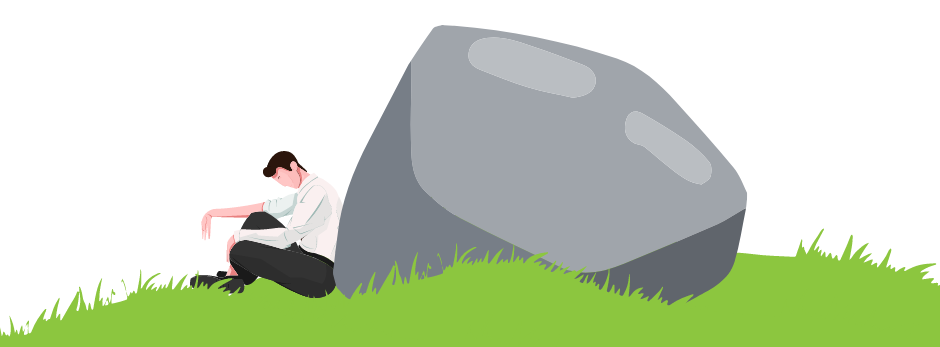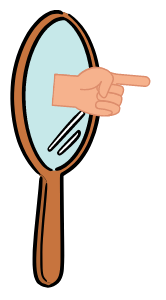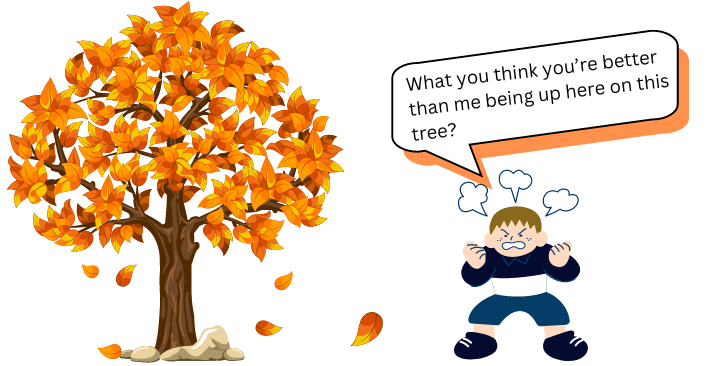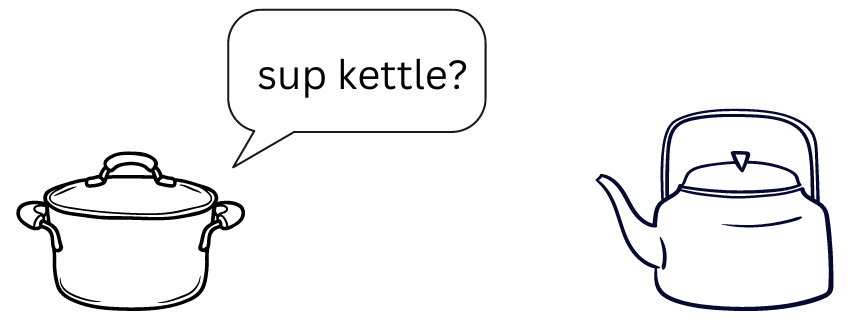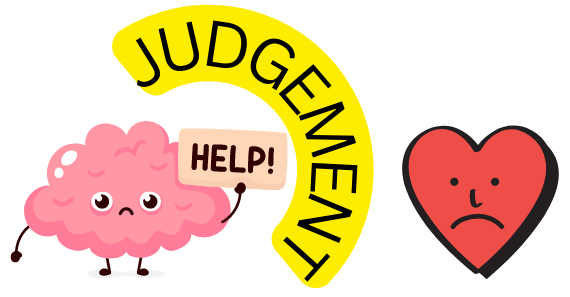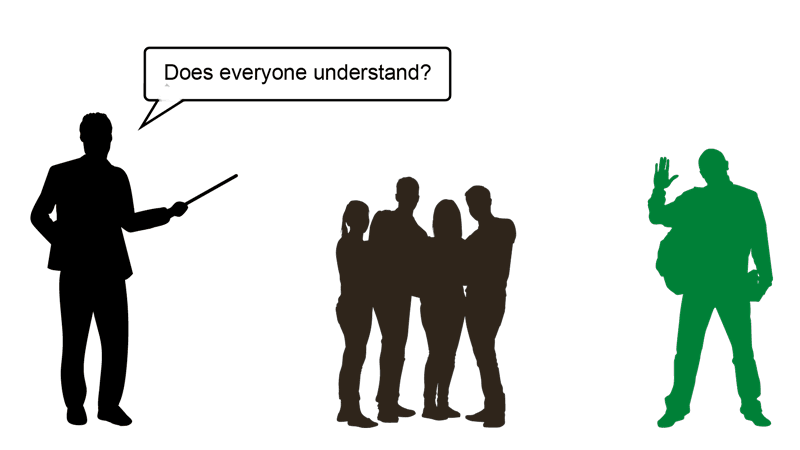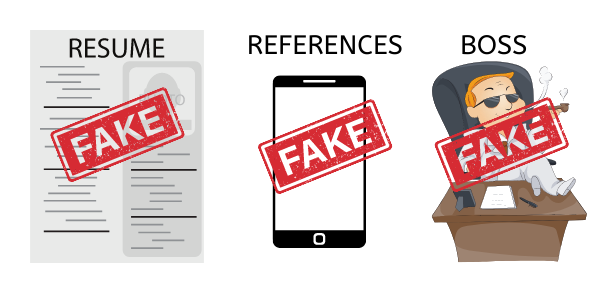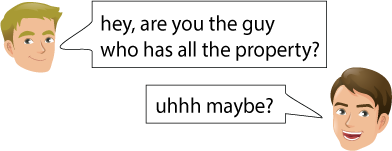I haven’t publicly coached in more than half a decade.
Even privately I’ve said no to almost every inquiry, due to working on my own stuff the last 5-6 years.
2017 was the last time I publicly did any coaching.
And now for the first time in 5 ½ years, I’m going to open up some spots for coaching.
Why?
Because I miss it.
And now after successfully placing the real estate bet I wanted to place, along with the draft of my book being done, I find myself with the time to help a few of you.
I love helping people solve how to achieve their desired goals.
Getting to help committed people change their lives feels like play to me.
I solve money, life and business puzzles for fun.
And I want some new puzzles!
Some people play video games. Some people golf. Some people collect stuff.
Me? I love figuring out how to achieve a desired result, and doing it in a desirable timeframe. And as or more importantly, helping people to get clarity on how to make it a possibility. Exposing them to paradigm shifts when needed to finally get the ‘aha’ moment they’ve been seeking.
–
Want to achieve extremely aspirational goals for yourself and have an incredibly transformational year in 2023?
Then it’s important to realize aiming to make small improvements over where you are would be a hindrance to that.
Incremental improvements would be uninspiring for both of us, and likely a waste of a year, despite that being how most people do their goals.
Small improvements = much of the same
Transformational results = life changing, and a way more exciting way to get up every morning
I want to work with you if you know you have the potential to be in a completely different place than where you currently sit, and could use my help in finding blind spots that are keeping you from doing just that.
There’s plenty of people out there who can help if you want to make some small improvements in your life.
People work with me if they want a different life.
I have a track record of not just getting desirable results for myself, but a track record in helping others achieve very desirable results, due in part to my love of simplifying things that are considered complex.
It’s common for people who work with me to have incredible life transformations.
The ability to create extreme success and/or your desired life is not some esoteric idea. It’s completely available for you.
Life change is often too small of a goal.
Many want a new life entirely.
They just don’t believe it’s possible.
But it is.
And getting there doesn’t have to involve some deep level of complexity.
It is a simple removal of what’s getting in the way, and adding those things that would completely change what becomes possible.
If blind spots are keeping you from seeing either, you remain in the dark to what needs to be added or subtracted. One of our first goals working together is to remove the blind spots by shining a light on what needs to be added or subtracted, and why.
Simplicity over complexity.
Complexity is a story the mind gives us for why we can’t have something and why others can. It gives us a reason not to figure out what the missing pieces to the puzzle are.
When the reality is you are as close as you could ever imagine, but walking through the door requires knowing where that door is, and removing any obstacles blocking the path, versus walking through the wrong door and spending many more years of your life on a path that doesn’t serve you or offer you the life you want.
Remove the thought altogether that it has to be complex. That false belief is keeping you from even seeking the simpleness of the solutions.
Part of the false assumption that it has to be difficult comes from assuming others have access to something you don’t have. Some ‘secret’.
Or the myth that you need years or decades of personal experience at something before you can start having massive results.
That’s silly, and not the case for myself and many others who are achieving very desirable results in relatively short time periods.
Experience and knowledge are transferable.
Extract experience from someone else who can save you a massive amount of valuable time.
I remember when I wanted to get in great shape. I could have googled articles and watched videos on how to do it and come up with a plan that may or may not have worked, and I wouldn’t have really known for a while if it was going to work if I attempted to do it on my own. It would have been a ‘free’ way to do it, but I don’t know how great the results would have been and I don’t know how long it would have taken.
Instead, I hired a world champion bodybuilder, mapped out what I wanted, and got shredded in 6 months. The year after, I entered a bodybuilding show in the physique division and won the thing! A completely ‘unrealistic’; result, in a very short time period.
Those results wouldn’t have been possible if I tried to slowly learn it all on my own. I would have been scratching my head years later wondering why I didn’t look like the guys I wanted to look like.
So I worked with someone who had results I wanted so I could tap into their experience and knowledge and shortcut my timeframe for results by YEARS.
Pretend I decided to take on the goals you want. Let’s say I had no experience in the specific area you were wanting to achieve, and all the sudden I take on your goals.
I can confidently tell you I would achieve ‘unrealistic’ results, even if I had little to no experience in that specific area.
Why?
Because my ability to accomplish comes from understanding how to make decisions that lead to the desired results I want to achieve.
Not from the significantly less valuable variable of industry specific experience. That can quickly be acquired by understanding what is most and least relevant. That’s nothing but data. Easy to acquire data.
Data is what enables decision making.
Show me someone with a bunch of data and a lack of great decision making, and I’ll show you someone a high level decision maker will smoke all day long(no matter how much ‘experience’ that person has). Because all the decision maker has to acquire is the data. The ‘experienced’ person would have to figure out how to start being an optimal decision maker. It’s not complicated who’s going to win that battle.
Becoming an expert at decision making makes it feel like you’re competing against children since so few do it well, and that skill would enable you to continue setting and achieving ‘unrealistic’ goals the rest of your life.
Who Is This For?
This is for you if you not only want to make a big leap in your goal setting and goal achievements for 2023, but want to maximize the growth rate of your net worth in a much smaller time period than is possible for you right now, so that the goals we line up and knock down for you in 2023 are a domino for your desired life. It is important to connect them so that your net worth progresses at a rate that would be likely to produce your desired results in a desirable timeframe.
Many people don’t properly account for the timeline and set yearly goals in isolation from their ultimate life goals. This is a ginormous blunder in goal setting and creating the life you desire.
I want to simplify how to have what you want in life, and eliminate the fallacy of the need for complexity.
You should be able to predict much of your success. But you can’t if you lack a plan that gets you there. In our first session together one of the things we’ll make sure is that the plan we map out for you includes your desired results as an expected result.
At the beginning of 2023, I could tell you what the end of 2023 will look for me already. If I wrote my year end review at the beginning of the year, it would look eerily similar to what the actual results end up being, give or take. I already know what’s going to happen because of the way I’m structuring my strategy, along with the specific structure of my days/weeks/months to ensure the new reality I wish to create.
This new reality matches up with my desired longer term reality for the life that I desire to create.
This clarity brings a peace that’s not possible if you’re always running around in circles wondering if the path you’re on will even produce what you’re wanting to produce. That sounds stressful!
It has been common for me to have a session with someone who shares their short and long term goals, and I quickly show them that it is not even mathematically possible to achieve their longer term goals in their current path. Much of my effort is not just helping you strategize and pick optimal paths, but in making sure you avoid suboptimal ones that seem good on the surface.
Starting each year with a clear strategy on not only where I’m going but that the planned actions I’m about to execute will likely get me there, creates incredible mental freedom, and clarity.
I want the same for you.
So much so, that if we work together I’m going to show you exactly what will happen with my own 2023 goals, show you why I know it will happen by openly sharing my strategy and tactics, and let you literally see my weekly/monthly progress the entire year so you can more deeply understand how and why it’s happening, to make it even easier for your own goal achievement implementation.
So, if you’ve seen me post quarterly or yearly goals, the few of you who will be working with me will know not only exactly how I intend to accomplish them, but see in real time my progress/tracking towards that specific result on a weekly basis. You’ll be peeking at my paper during the entire ‘test’.
And, you’ll have direct access to me so if you have a question on why or how I’m doing something, or have a question on a specific tactic or strategy you see me implementing, you’ll have an answer. And you’ll get to see in real time what’s working, what’s not, and how I’m adjusting to each.
We’ll be working together throughout the entire 2023 year.
You and I will start by mapping out your entire 2023 strategy together. A custom plan to create your desired results.
I want to make sure you’re going in the right direction to make your goals a reality, so not only will you have a blueprint for which to own your year, but to more deeply understand the ‘method behind the madness’ I’ll share my own goals and strategies with you so you can see the exact actions I plan to take to achieve my own goals.
What used to seem complex or ‘impossible’, will start making complete sense as to why some can achieve ‘unbelievable’ goals, and why the rest of people continue on with false beliefs that it’s ‘not possible.’
We’ll bridge that gap so you start off 2023 with clarity.
So besides mapping out the best year you’ve ever had, we’ll spend time getting to know each other, so that I can more deeply understand how to be of help to you through the year.
We’ll set you up to author the life you actually want.
Then we’ll get to filling in the pages of that book.
I’ll be giving you access to the exact same spreadsheets I use to track every goal, and every action related to those goals to simplify the process of staying on pace, and to be able to quickly correct course if off pace.
Every quarter you and I will be doing a 1 on 1 deep dive on zoom to review your quarter, and to map out your next quarter together, so that we continue progress towards accomplishing your 2023 goal as quickly and efficiently as possible.
Every month in between those deep dives, you’ll have the opportunity to hop on zoom calls with me as well, so if temporary hurdles or roadblocks come up that give you pause or that you could use feedback on, you’ll be able to connect with me so we can adjust tactics or tweak strategy based on the new information, so that you don’t waste time in non-action and can stay on pace for your goals.
We’ll work/play together to create this whole new reality you seek.
You will find yourself quickly learning a new way to make decisions, and uncover what will likely be life changing ways of seeing the world.
Why people hire me
Most of you reading this likely have known me for a while from reading the blog or listening to old podcast episodes, but here’s a sample of some things I’ve done:
- Poker Training Company: Created a 7 figure business with no previously existing platform(no email list, etc…) that in under 2 years already had 3,000+ paid monthly recurring subscribers
- Poker Media Company
- eCommerce store owner: Owned 21 separate eCommerce stores less than 2 years after starting my 1st
- ForeverJobless: Millions of website visits/podcast downloads as a part-time hobby
- Business Incubator: Helped take people from no idea, to a profitable business. Most people entered the Incubator without an idea of the business they would start. Six, seven and even eight figure businesses were created from this.
- Won a bodybuilding show in the physique division, within 18 months of being a scrawny dude that ‘had no idea how people get ripped’.
- Bought 300 properties in less than 18 months while writing a book and recovering from a health issue.
- Made $4 million profit on one stock investment using the basic principles of EV(expected value).
The point of setting a goal is not just for what you wish to achieve, but to do so in desirable timeframes. Doing so in desirable timeframes increases the years you are able to live your desired life.
I set a goal last year to buy 100 properties. I bought 200.
This year my goal was 50 properties and to finish writing my book. I bought 100 and have written almost two already.
I’m doing this while taking 6+ weeks of vacation a year.
As or more importantly, I’m doing this without running around with my head cut off, stressed out like many entrepreneurs. There’s no point in getting there if you’re arriving or living in a state like that.
These things are not happening by accident.
And they’re not happening in a way that couldn’t happen for you.
This matters a lot to have you understand this.
Anything I am able to do, is fully available for you, as I’m not using some complex method to achieve anything I’m doing. Quite the opposite, I’m breaking down anything I desire into its simplest components, which simplifies and brings clarity to everything.
The same way it would for you.
One of the biggest blunders that keep so many from achieving the life they want
“Our plans miscarry because they have no aim. When a man does not know what harbor he is heading for, no wind is the right wind.” – Seneca
We can figure out which way to go if we know exactly where you want to end up.
It’s nothing but an equation that can be solved.
We don’t have to guess, we can find answers to determine which routes get us there, and which ones don’t.
But to be able to customize a specific path for your own specific financial goals, we need to know what we’re solving for. We need to know your desired end result.
Your desired end result is the life you want to live.
It will cost a certain amount of money to fund this future life. That is the number we’ll solve for to formulate a plan to ensure you get there.
Several routes could theoretically work and get you to your goal, so if you’ve picked a route that could work it’s not ‘wrong’… but it might not be optimal
The path that most people choose to reach their goal, or desired life, is usually not optimal.
When people are looking for a route that might get them where they want, they’ll usually come to an answer… but it’s often to the wrong question.
So many mistakenly go down that rabbit hole only to look up years later wondering why they are not much closer to living the life they desired- it’s because they solved for the wrong thing.
There is rarely a ‘wrong’ answer.
But there’s often a wrong question.
To come to an answer that’s an optimal route for you, you must think about the question you’re solving for.
If you have the right answer to the wrong question, it can be much more dangerous than getting the wrong answer to the right question, because in a short time you’d realize and fix it, where the other route you’d have no reason to fix if succeeding at a route that’ll never get you where you actually desire to end up.
Have you stopped for directions to make sure you’re going to end up where you want?
Some people think:
‘I don’t have time to stop for directions. My favorite guru says I need to hustle my face off!’
They fail to realize that they’re actually delaying their path to their end goal because they’re often ‘hustling their face off’ in the wrong direction.
“It’s like eating soup with a fork. You keep busy but you stay hungry.”
It’s like you’re on a road trip and say “”we’re making great time!” but you’ve been driving the wrong way the whole trip.
You’d be making great time for NEVER achieving your desired life.
“Velocity and speed are different things. Speed is the distance traveled over time. I can run around in circles with a lot of speed and cover several miles that way, but I’m not getting anywhere. Velocity measures displacement. It’s direction-aware.
A lot of people think in terms of one dimension (speed). Almost all of those people are passed by people who think in multiple dimensions (velocity).
Think of it this way: I want to get from New York to L.A. Speed is flying circles around Manhattan, and velocity is hopping on a direct flight from JFK to LAX.”
… “Then you need to distinguish between tasks that offer a lot of speed and those that offer velocity.” – Shane Parrish
Getting advice to ‘hustle your face off’ might inspire you, but if you’re working lots of hours in the wrong direction, you have speed, not velocity.
Someone who takes time to think logically about the optimal path to take, once they start making movement they’ll achieve velocity, very quickly bypassing the person who’s focused on speed.
Why I left a 6 figure job at 25
When I was 25 I decided to leave my six figure ‘job’ as a professional poker player.
Even though I was earning substantial income relative to peers my age, it was still a ‘job’ with limited upside and leverage.
My goal wasn’t to have more money or success relative to others my age. That’s a foolish game to play.
I wanted to set up my desired life, and I wanted to do it relatively quickly so I could actually live it and enjoy it versus just dreaming about it and waiting for it to magically come some day.
So despite others thinking I was crazy to give up that income, I knew I had to make a change if I actually wanted to achieve the life I wanted. So I knew I’d need to either disattach my time from my income and/or make a substantial enough amount of money to where the investment returns exceeded the costs of my desired life.
I needed to avoid climbing the wrong hill.
Climbing the wrong hill
There’s a concept called hill climbing that Chris Dixon described well:
“Imagine you are dropped on a random spot on a hilly terrain, where you can only see a few feet in each direction(assume it’s foggy or something). The goal is to get to the highest hill.
… At any given moment, take a step in the direction that takes you higher. The risk with this method is if you happen to start near the lower hill, you’ll end up at the top of that lower hill, not the top of the tallest hill.
…But the lure of the current hill is strong. There is a natural human tendency to make the next step an upward one.” – Chris Dixon
Part of the actual definition of hill climbing is:
‘starts with an arbitrary solution to a problem, then attempts to find a better solution by making an incremental change to the solution…’
And when we look at the definition of arbitrary: ‘based on random choice or personal whim, rather than any reason or system.’
Hill climbing makes it ‘easy to find an initial solution, but will likely be very poor compared to the optimal solution’.
Usually people quickly find a solution to a problem, and stop the search and go down the suboptimal road versus taking more time to find a solution to THE problem, which would lead them down an optimal road.
They mistakenly have the thought process of:
“Well this is clearly better than where I was before… so this must be a good route- I’ll do that!”
Better does not mean optimal, or wise.
Improving one variable in an equation that doesn’t produce the result you want means do NOT go with that plan.
If you want to achieve financial independence or a large financial goal in a relatively short time frame, you need to avoid climbing the wrong hill, because eventually you’ll have to start over on the right hill anyways, so you’re just delaying what you have to do.
If you already realize that you’re on the wrong hill- why spend more time trying to get to the top?
It’s backwards.
You use up your finite resource of time to reach a place you know you don’t want to be.
The more time you spend on the wrong hill, means less time on the right hill which means less chance of achieving what you actually want, especially in any sort of desirable timeframe.
As silly as it is, that’s how almost everyone does it.
Look:
You have a dream life.
You have a number that gets you there.
If you know these two things you’re already farther than most people.
But the mind works in a funny way. It has to be well managed- by YOU.
So let’s say you tell me:
“I need $3m to live the life I want”.
Your brain incorrectly tries to solve this problem by saying:
“I need to make more money”.
Back to what we discussed in solving a similar problem…
Let’s say an opportunity comes up where you can make more money, and you think to yourself:
“Well I know I need to make more money, and doing this will increase my income… YES, I’m going to do this!”.
Instead of stepping back and asking: “does this route get me to my desired goals, in my desired timeframe?”, which your brain doesn’t ask.
Your brain sees the answer to a similar problem and tries to solve for that. “It’s offering more money… and I need more money to hit my goal.”
It’s operating using the wrong inputs.
You’re solving for the wrong thing.
And so you blindly follow the wrong path instead of doing a quick mathematical analysis that would prove it’s not a good path for your goal.
You’d feel like you were winning short term, but long term you’d take a giant loss.
You’d blindly climb the wrong hill when it’s very easy to realize that hill does not get you to the mountaintop you desire.
uNINTENDED RESULTS OF A MISPROGRAMMED SYSTEM
‘In seeking the wrong goal, the system obediently follows the rule and produces its specified result- which is not necessarily what anyone actually wants.”
“The trap: seeking the wrong goal
System behavior is particularly sensitive to the goals of feedback loops. If the goals- the indicators of satisfaction of the rules- are defined inaccurately or incompletely, the system may obediently work to produce a result that is not really intended or wanted.” -Thinking in Systems
What is your number? The number that will provide the life you want.
All you need to do is make sure your plan is matched up with that so we can ensure accomplishment of that life.
Again, you shouldn’t have a money goal in mind, until you know the life you’d like to live. Once you know that, figure out what that life will cost you.
‘One of the most powerful ways to influence the behavior of a system is through its purpose or goal. That’s because the goal is the direction-setter of the system… if the goal is defined badly, if it doesn’t measure what it’s supposed to measure; if it doesn’t reflect the real welfare of the system, then the system can’t possibly produce a desirable result. Systems, like the three wishes in the traditional fairy tale, have a terrible tendency to produce exactly and only what you ask them to produce. Be careful what you ask them to produce.’ – Thinking in Systems
You must set a goal where the end result of producing that gets you exactly where you want to be.
Most people falsely assume their goal is money when money is just currency that’s exchanged for whatever your goal really is.
What do we want? X.
Does the route you’re currently on get you there?
If no, you must choose a new path that gets you there.
Or
You must change what you want.
Either the route you’re on, or the thing you want must change.
And to top it off, you must not forget about arguably the most overlooked variable:
What is your timeline?
Because even if you were theoretically on a route that would successfully bring you the result you desired(which most people are definitely not), you might produce a positive result, but not in the timeline you’d desire.
If that result comes in 20 years and you had visions of living this desired life in 3, again you must change one of the variables.
You must either change your path, change what you want, or change the timeline you’re okay with accomplishing this in.
But again, at least one variable MUST change.
If you’re not on a path that gets you where you want in the timeline you want, and you don’t change one of the variables, you will produce unintended results with your misprogrammed system.
At any major decisions and on a regular basis, you should be asking yourself:
Does this help me accomplish my desired life?
If you find yourself thinking, ‘no but it’s more money than before!’… all that means is it’s taking you away from your desired result.
As Peter Drucker said, “What gets measured, gets managed”, but the trap with that is if you’re measuring the wrong things, you won’t end up anywhere close to where you desire.
Most people measure for short term income, and then feel bamboozled when they realize that optimizing for that suboptimal variable will never get them to their desired end result in any sort of reasonable timeline.
Does this surprise you… that your bets, uncalculated, lead you to a place you don’t want to be?
It shouldn’t.
You are exactly where you should be based on all of your past decisions.
It is your expected destination, even if YOU didn’t expect it.
Most people don’t know what’s important on a daily basis so they do what gives them the most short term reward, inadvertently going against the optimal strategy for their long term goals and what’s actually important to them.
The price of the highest short term rewards are often at the sacrifice of the most +EV paths.
If you keep ‘winning’ like that, you’ll surely lose.
Most people mathematically can’t achieve their desired result in their current route, yet instead of changing one of the necessary variables that would get them there, they solve for a much less important variable as if that fixed the problem.
You want to avoid chasing the wrong number only because the right number was difficult to quantify for you.
MISGUIDED POSITIVE FEEDBACK LOOPS
Small progress on irrelevant variables confuse you into thinking it’s real progress towards your goal, when most people have forgotten the real goal altogether, drunk on the dopamine of improving at an unrelated goal.
“The art of being wise is knowing what to overlook” – William Blake
I’ve had several students in the past who were about to accept a big promotion, or enter into a business opportunity because they’d make more short term money, but when showed the math behind what they were about to do, quickly rejected these opportunities as they would have hindered, or completely obliterated their ability to hit their longer term goals.
They were significantly lower EV than was necessary for them to achieve their dream life.
A lot of times the harder part isn’t picking a route that will help you reach your goal, but avoiding ones that seem good on the surface but are nothing but misguided positive feedback loops that do nothing but take you off course.
No one will ever write home about the opportunities they passed up, but oftentimes that’s what actually made sure you stayed on course to ensure you achieved what you wanted.
There’s something called “boiled frog syndrome,” from the old story that a frog put suddenly in hot water will jump right out, but if it is put into cold water that is gradually heated up, the frog will stay there happily until it boils.
When people are getting misguided positive feedback such as increasing income that won’t lead to a desired end result, it doesn’t seem like anything bad is happening, but your dream life is burning up. It’s just happening in a way that you don’t notice this is happening. It’s out of sight out of mind, so it never even gets your attention until it’s too late.
“In truth, outright failure is often preferable to mediocre success” – Positioning
Outright failure would make you realize you need corrective action immediately.
Mediocre success often disguises the fact that you NEED CORRECTIVE ACTION IMMEDIATELY.
EXPECTANCY THEORY
Don’t fall into the trap of setting low goals so you can hit them. Then you’re just going to be “successful” at hitting goals, but unsuccessful at life.
You’re robbing yourself.
There’s something called expectancy theory.
“According to the theory, three things must be in place for a person to have extreme and uncommon levels of motivation:
- You must believe the reward (the ‘WHY’) of a particular goal is important, meaningful, and compelling.
- You must believe that you know how (clear strategies/plans/people) to achieve your goal.
- You must believe that you can execute the plans, strategies, and pivoting involved in achieving the goal.” – Benjamin Hardy
Many people wonder why they spend life unmotivated and unfulfilled when the thing they’re working on won’t even get them the result they desire. The ‘reward’ as pointed out in point one, must be compelling.
We’ll map out a gameplan to make sure your strategy lines up to hit it, but you need to set a goal you very much desire. Don’t set a lower goal because you think it’s more attainable or you won’t find yourself motivated enough to even pursue the lower goal, a goal which wouldn’t get you where you want anyways.
“Expectancy theory proposes that an individual will behave or act in a certain way because they are motivated to select a specific behavior over others due to what they expect the result of that selected behavior will be.” – Wikipedia
If we work together the expectations you have for yourself may quickly change because you will see what’s possible for you. Once this expectation of yourself has changed, that domino helps us to start knocking down the other ones, as they continue to fall to the ultimate domino of your ‘dream life’ comes into view.
Remember your goal and set your bets accordingly in a way where you’re mathematically expected to not only achieve that goal, but to do so in your desired timeframe.
If you can achieve the goal in 10 years, cool.
But if you can achieve it in 1, you get to live a much more desirable life for the next 9 years vs. just waiting to do it in a ‘realistic’ timeline.
A couple questions I received recently
Do we actually work directly with you or do we talk to a coach or customer service who works for you? Most people who teach online have people learn through videos or their staff?
You will be working directly with me.
Most people teaching online are attempting to enrich themselves, instead of others.
They are optimizing for their own success.
I am optimizing for your success.
Can we really predict where we’ll be a year from now?
Yes. I’ve done this for years.
I’ve done it with business.
I’ve done it with real estate.
I’ve done it with bodybuilding.
I’ll do it with books.
And as mentioned, when you work with me you’ll not only know my goals but my specific tactics I’ll use to achieve them, and watch me execute them on a weekly basis. So there will be no question as to how I’m achieving the ‘unrealistic’ goals I’ll be achieving, as you’ll be looking over my shoulder seeing exactly how I’m doing it in real time.
And this is exactly what I’ll be helping you do, but the added benefit of opening my entire playbook for you will show you there is nothing special I am doing to achieve ‘impossible’ goals. You will see the method behind the madness, and realize the only madness is not approaching your goals or life in this way.
Coming Soon
In the next few days I’ll share a story from Paul, who’s been doing this kind of work with me for almost 2 years. He’s the only student I agreed to work with in 2021. Not only did he watch in real time as I made my real estate bet and explained what would happen and why at each stage of the bet, but he’s achieved insane results following the same exact goal setting strategy that I use.
Applications Are Live Now
Applications will be competitive, so please keep this in mind as you fill it out because only a certain % of people will receive an invite.
This is due not only to the limited number of spots available, but because I only want to work with you if I think we can create significant results.
I am not optimizing for # of students. I am optimizing for the level of life change for the limited number of you I do work with.
If I think it’s a good fit, you’ll receive an invitation to work together soon.
The last time I offered coaching publicly the spots filled up very quickly, so if you’re going to apply, I’d recommend doing it now versus waiting:
I look forward to reading your application and learning about your journey of where you’ve been, and your goals about where you’d like to go. And if it’s a match, looking forward to helping you get there.
-Billy
